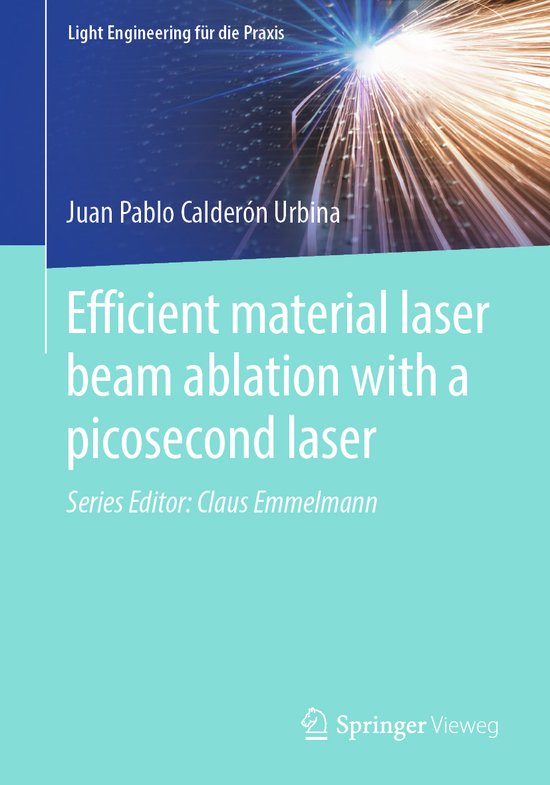Rbizo.com
Efficient material laser beam ablation with a picosecond laser

Rubriek: Textual/Printed/Reference Materials - Boek
Prijs: € 125
Rating: 0/5
☆
☆
☆
☆
☆
Verzending:
Uiterlijk 3 december in huis
Uiterlijk 3 december in huis
Inhoudsopgave:
Omschrijving:
Ultra-short pulse laser processing of ultra-hard materials requires an accurate and agile experimental and analytical investigation to determine an efficient choice of parameters and settings to optimize ablation.
The development of ultra-short pulse lasers has given laser beam ablation a wider application perspective by granting minimal thermal side-effects, industrial robustness and precision. A rising field of opportunity is the processing of ultra-hard materials. The intersection of reliable ultra-short pulse laser sources and the increasing trend of hardness represents an opportunity for laser beam ablation. This thesis describes the modeling and validation of multi-pulse picosecond laser beam ablation on cemented tungsten carbide (WC) to enable the identification of optimized parameter settings for an efficient ablation process. Thus, a quality-oriented experimental approach based on the variable search methodology was chosen. Within the multi-pulse laser beam ablation model, the Beer-Lambert law, heat transfer fundamentals, incubation and laser burst-mode are considered to accurately describe the process.
Content A concisejourney through the background and understanding of ultra-short pulse laser technologies Offers versatile application of quality-oriented tools in laser beam material processing Describes a single-pulse and multi-pulse model on cemented tungsten carbide capable to be adapted to other materials and laser systems
The author
Juan Pablo Calderón Urbina obtained his Bachelor’s degree in Industrial Engineering at the Morelia Institute of Technology in Morelia, Mexico (Instituto Tecnológico de Morelia). He specialized in International Production Management at the Hamburg University of Technology (Technische Universität Hamburg) for his Master of Science’s degree. Until 2013, he collaborated as a research assistant in several research and industrial projects with the Laser Zentrum Nord GmbH. In 2019, he concluded his scientific research and completed his doctorate at the HamburgUniversity of Technology, in the Institute of Laser and System Technologies (Institut für Laser- und Anlagensystemtechnik, iLAS).
- 1 Bekijk alle specificaties
Beste alternatieven voor u.